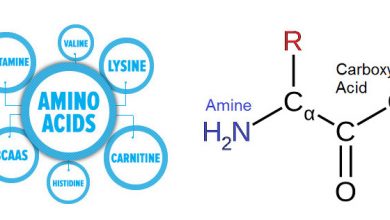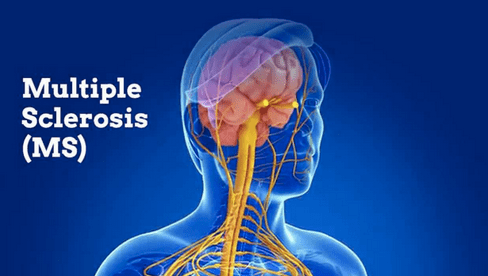Glycerol and fatty acids are the main components of dietary fats, and fatty acids are composed of chains consisting of carbon and hydrogen atoms, and these chains are classified according to the number of carbon atoms and the number of double bonds between the carbon atoms. As saturated fats lack double bonds, it determines whether the fat is saturated or unsaturated.
In monounsaturated fatty acids (MUFAs), the fatty acid chain contains a double bond, while polyunsaturated fatty acids do not. PUFA stands for polyunsaturated fatty acids. More than one double bond is present.

Saturated fats include:
Saturated fats are classified by the length of their carbon chains, so there are short-chain fatty acids, medium-chain fatty acids, and long-chain fatty acids, and each has different health effects. are.
Saturated fat comes from the following sources:
Beef and chicken are examples of meat.
Coconut oil and palm oil are some vegetable oils.
Cheese, milk, and butter are dairy products.
Sausages and sausage products are processed meats
Snacks that are prepackaged, such as pretzels, chips, and cookies.
Sour cream, ice cream, and cream.
The chocolate.
Do saturated fats have any health benefits?
Foods high in saturated fats have a negative effect on health, but this cannot be generalized to all saturated fat-containing foods. It is well known that diets high in saturated fats such as fast food, processed meat, and cooked foods high in sugar can adversely affect your health, whereas diets high in healthy saturated fats such as dairy products and coconut may have a different effect. Therefore, the diet determines a person’s health and the risk of contracting disease, rather than a specific type of food.
In addition to whole milk, and some types of meat, moderate amounts of saturated fat can be added to a healthy, balanced diet, such as coconut oil, unsweetened coconut flakes, and coconut products like coconut oil. Their nutritional value and health benefits are high.
A study published in Nutrients in 2019 included 270 participants. According to this study, consuming long-chain fatty acids improves cognitive performance in the sample studied.
It is essential to add small amounts of fat to a healthy, balanced diet. Essential fatty acids are found in fats. Fats help the body absorb fat-soluble vitamins such as vitamin A, vitamin D and vitamin E, which it cannot form on its own.
Weight gain caused by saturated fat consumption
All types of fat contain nine calories per gram, which is twice the amount of calories as carbohydrates and protein.
In addition to reducing thermogenesis, meals rich in saturated fat lead to a reduction in postprandial energy expenditure and fatty acid oxidation.
Saturated fats have the greatest impact on weight gain, according to a 2013 study published in the European Journal of Nutrition.
Saturated fats and heart health:
The relationship between saturated fat intake and heart disease risk cannot be generalized to all types of saturated fat, according to a study published in 2017. Researchers showed in this study that long-chain saturated fat does not increase the risk of heart disease, as we mentioned earlier.
Saturated fats, however, are associated with high levels of bad cholesterol (LDL cholesterol), which is also divided into two types, coarse and light particles and fine and dense. Due to their sensitivity to oxidation, small molecules are more likely to cause atherosclerosis than large molecules, since they cause inflammation in the lining of blood vessels.
As a general rule, saturated fat consumption is not directly linked to negative effects on heart health, but saturated fats may increase heart disease risk factors and negatively impact appetite when compared to unsaturated fats.
Tips for reducing saturated fat
Saturated fat should not exceed 10% of the body’s total energy intake, according to the World Health Organization. It means men should consume no more than 30 grams of saturated fat per day, women should consume no more than 20 grams, and children should consume less.
You can reduce your saturated fat intake by doing the following:
Before shopping, read the food label to find foods low in saturated fat.
Cooking other than frying, such as boiling, steaming, or baking.
Use a teaspoon or an oil can to control how much oil is used.
Before cooking, remove visible fat from cuts of meat or chicken skin.
Trans fats vs. saturated fats
Saturated fats are processed into trans fats. Refining vegetable oils occurs by adding hydrogen atoms, which turn them from a liquid to a solid at room temperature, and this process is called hydrogenation, and trans fats are naturally formed in some vegetable oils.
The World Health Organization reports that about 540,000 people die each year as a result of excessive consumption of processed trans fats, as this type of saturated fat increases the risk of death by 34 percent from any cause, as well as heart disease death. Because trans fats reduce good cholesterol levels and increase bad cholesterol levels, the incidence of heart disease is 21%. The health benefits of trans fats are unknown.
For a 2,000-calorie diet, the World Health Organization recommends limiting trans fat intake to 1% of total energy intake, or 2.2 grams per day.










